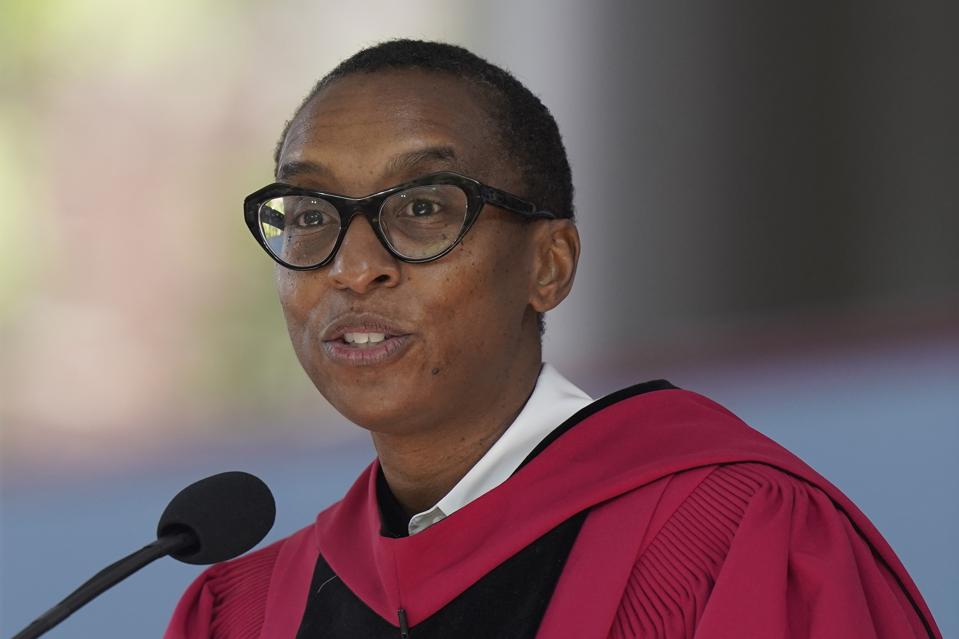It was just announced that Harvard University’s first Black president, Dr. Claudine Gay, will resign. Gay has faced heavy backlash after what some labeled as an inadequate response to antisemitism on Harvard’s campus following the Hamas attacks on Oct. 7. In addition to the backlash Gay and other university presidents faced after a congressional hearing, Gay experienced more scrutiny after plagiarism allegations. In a letter to the Harvard Community, Gay wrote “It has become clear that it is in the best interest of Harvard for me to resign so that our community can navigate this moment of extraordinary challenge with a focus on the institution rather than any individual.” Gay, who began her tenure as president in July 2023, will have the shortest presidency in the university’s history.
Gay’s experience is not unlike that of other prominent Black women leaders; there’s a disturbing trend where Black women are promoted and elevated into leadership positions and despite how qualified they are, they experience hyper-scrutiny once they take on the position. The inspection and interrogation that leaders face is even more severe for Black women leaders, especially those who are the “firsts.” This was evidenced during the confirmation hearings of the first Black female U.S. Supreme Court justice Ketanji Brown Jackson. As author Mikki Kendall wrote in a Time piece in 2022, “Despite her impressive credentials, Jackson has faced an onslaught of microaggressions, outright falsehoods, and demands for irrelevant information.” Jackson displayed an admirable level of coolness and composure despite the barrage of ridiculous claims and criticism from Senators.
For Nikole Hannah-Jones, being a Pulitzer Prize-winning writer for the New York Times Magazine wasn’t enough for the University of North Carolina. The university denied Hannah-Jones tenure, despite appointing her to the position of Knight Chair in Race and Investigative Journalism at the university’s Hussman School of Journalism and Media, which typically comes with tenure. Hannah-Jones holds a master’s degree from the university and is a MacArthur fellow in addition to spearheading the groundbreaking 1619 Project, which earned her a Pulitzer Prize. Hannah-Jones epitomized “Black excellence,” but her credentials as a highly respected journalist were apparently not enough to grant her the tenured position. (It should be noted that the university did eventually grant Hannah-Jones tenure after much public criticism).
No amount of wealth, achievements, accolades, or notoriety will offer safety and protection in an anti-black world. Black excellence will never be enough—it is an insatiable chasm that tricks us into believing that all a Black person needs to do is “be excellent” to transcend oppressive systems and structures. But if the stories of Claudine Gay, Ketanji Brown Jackson, and Nikole Hannah-Jones can teach us anything, it’s that it doesn’t matter how much you know, how much you’ve achieved, or how far you’ve come. Being excellent for Black folks, and especially Black women, will not shield you from harm.
Black women can never rely on their excellence—misogynoir is never too far away. Black female leaders must be perfect and are never given the same room as their counterparts to make a misstep or a mistake. In an ideal world, systems would be created so that when Black women are invited into leadership positions, they receive the support that is desperately needed to thrive in those positions—but in reality, that often isn’t the case.
The presence of Black women in these leadership positions, though short-lived, can make way for powerful changes to take place. It is important to remember that simply surviving in an anti-black world is enough and is a feat that should be applauded. Black women, do not forget: the constant battles, the unrelenting backlash, and the brutal criticism aren’t always worth your sanity, your health, or your peace. Sometimes, it’s okay to let go.

